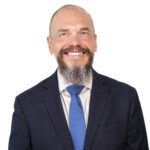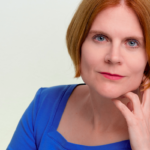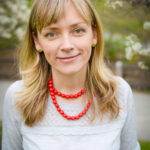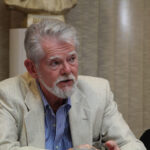
- This event has passed.
150th Anniversary Inaugural Symposium (for members only)
Presenter(s): Vitaly Chernetsky, Susan Smith-Peter, Oxana Shevel, George G. Grabowicz; moderated by Markian Dobczansky
December 16, 2023 @ 2:00 pm - 4:00 pm
Event Navigation
150th Anniversary Inaugural Symposium
December 16, 2023 2:00–4:00 pm
Second Floor Lecture Hall
PANEL: Ukrainian Scholarship in Light of the Russian War on Ukraine
The Shevchenko Scientific Society in the US, just as the original Society founded 150 years ago, has always been tasked with formulating scholarly and intellectual responses to existential questions confronting Ukrainian society. The outbreak of the current Russian war on Ukraine galvanized our members to a remarkable degree as they shared their expert knowledge on all fronts. As the war grinds toward its third year, this panel examines our respective academic disciplines to see what progress has been made in both discourse and institutional structures and, specifically, what next steps would be most effective.
Vitaly Chernetsky “Confronting Epistemic Injustice: Why Centering Ukraine in Humanities and Social Science Research Is an Urgent Imperative.” Vitaly Chernetsky will examine the changing place of Ukrainian studies within the broader field(s) through the prism of critical epistemology—questions of epistemic injustice, epistemic imperialism, and others.
Susan Smith-Peter “How the Field Was Colonized: Russian History’s Ukrainian Blind Spot”. The field of Russian history in the United States was transplanted from Russia, and specifically from V.O. Kliuchevskii’s idea of Russian history. For Kliuchevskii (1841–1911), resettlement and colonization were the key features of that history, and only the “Great Russian” people had agency. Susan Smith-Peter will discuss how Russian and Ukrainian studies in the United States still receive unequal resources and scholarly attention and potential strategies to enact meaningful change.
Oxana Shevel “Russia and Ukraine: Entangled Histories, Diverging States”. Since 1991 Russia and Ukraine have diverged politically, ending up on a collision course. As Ukraine built a democratic nation-state, Russia refused to accept it and came to see it as an “anti-Russia” project. Oxana Shevel will trace the history from 1991 to explain how divergences in self-perception of Russian and Ukrainian elites laid the foundations to the broader causes of the war.
George G. Grabowicz “Is Cancel Culture the Answer to Russia’s War on Ukraine?” George G. Grabowicz will speak on the challenges facing Ukrainian Studies in Ukraine and abroad and how we can use this moment to effect change in the various institutions of higher learning. A special focus will be placed on how Ukrainian scholars and artists in Ukraine are responding to Russia—often by “cancelling” Russian culture by not participating in any public fora with Russians. The task then falls upon scholars doing Ukrainian studies in the West to steer a course between these difficult if not impossible positions.
Meet the speakers:
 Vitaly Chernetsky is professor of Slavic languages and literatures at the University of Kansas. He is the author of Mapping Postcommunist Cultures: Russia and Ukraine in the Context of Globalization (2007; Ukrainian-language version, 2013), Intersections and Breakthroughs: Ukrainian Literature and Cinema between the Global and the Local (forthcoming, Krytyka), and of articles on modern and contemporary Slavic and East European literatures and cultures. He has edited or co-edited volumes dealing with contemporary Ukrainian poetry and film, an annotated Ukrainian translation of Edward Said’s Culture and Imperialism. His translations into English include Yuri Andrukhovych’s novels Moscoviad and Twelve Circles and a forthcoming edition (HURI) of Sophia Andrukhovych’s Felix Austria. Professor Chernetsky is a past president of the American Association for Ukrainian Studies (2009–2018) and the current first vice president of the Shevchenko Scientific Society in the U.S. He will begin his term as president of the Association for Slavic, East European, and Eurasian Studies (ASEEES) in January 2024.
Vitaly Chernetsky is professor of Slavic languages and literatures at the University of Kansas. He is the author of Mapping Postcommunist Cultures: Russia and Ukraine in the Context of Globalization (2007; Ukrainian-language version, 2013), Intersections and Breakthroughs: Ukrainian Literature and Cinema between the Global and the Local (forthcoming, Krytyka), and of articles on modern and contemporary Slavic and East European literatures and cultures. He has edited or co-edited volumes dealing with contemporary Ukrainian poetry and film, an annotated Ukrainian translation of Edward Said’s Culture and Imperialism. His translations into English include Yuri Andrukhovych’s novels Moscoviad and Twelve Circles and a forthcoming edition (HURI) of Sophia Andrukhovych’s Felix Austria. Professor Chernetsky is a past president of the American Association for Ukrainian Studies (2009–2018) and the current first vice president of the Shevchenko Scientific Society in the U.S. He will begin his term as president of the Association for Slavic, East European, and Eurasian Studies (ASEEES) in January 2024.
 Susan Smith-Peter is professor of history and director of the public history program at the College of Staten Island/ City University of New York. She has written widely on Russian regionalism and Russian-American relations. She is the author of Imagining Russian Regions: Subnational Identity and Civil Society in Nineteenth-Century Russia as well as the editor of a newly published 19th century manuscript by Aleksei Evstaf’ev titled The Great Republic Tested by the Touch of Truth. Since Russia’s full-scale invasion of Ukraine, she has engaged in the debate over how to decolonize Russian history.
Susan Smith-Peter is professor of history and director of the public history program at the College of Staten Island/ City University of New York. She has written widely on Russian regionalism and Russian-American relations. She is the author of Imagining Russian Regions: Subnational Identity and Civil Society in Nineteenth-Century Russia as well as the editor of a newly published 19th century manuscript by Aleksei Evstaf’ev titled The Great Republic Tested by the Touch of Truth. Since Russia’s full-scale invasion of Ukraine, she has engaged in the debate over how to decolonize Russian history.
 Oxana Shevel is associate professor of political science at Tufts University and director of the Tufts International Relations Program. Her research and teaching focus on the post-Soviet region and topics such as nation-building, identity, citizenship and memory politics, church-state relations, and democratization processes. She is co-author (with Maria Popova) of Russia and Ukraine: Entangled Histories, Diverging States (2023). Her earlier book Migration, Refugee Policy, and State Building in Postcommunist Europe won the American Association for Ukrainian Studies (AAUS) best book prize. Prof. Shevel serves as Vice President of the Association for the Study of Nationalities (ASN) and of the AAUS. She is also a country expert on Ukraine for the EU Global Citizenship Observatory, a member of the PONARS Eurasia scholarly network, a board member of the Shevchenko Scientific Society in the US, and an associate of both the Davis Center and the Harvard Ukrainian Research Institute.
Oxana Shevel is associate professor of political science at Tufts University and director of the Tufts International Relations Program. Her research and teaching focus on the post-Soviet region and topics such as nation-building, identity, citizenship and memory politics, church-state relations, and democratization processes. She is co-author (with Maria Popova) of Russia and Ukraine: Entangled Histories, Diverging States (2023). Her earlier book Migration, Refugee Policy, and State Building in Postcommunist Europe won the American Association for Ukrainian Studies (AAUS) best book prize. Prof. Shevel serves as Vice President of the Association for the Study of Nationalities (ASN) and of the AAUS. She is also a country expert on Ukraine for the EU Global Citizenship Observatory, a member of the PONARS Eurasia scholarly network, a board member of the Shevchenko Scientific Society in the US, and an associate of both the Davis Center and the Harvard Ukrainian Research Institute.
 George G. Grabowicz is the Dmytro Čyževs’kyj Research Professor of Ukrainian Literature in the Department of Slavic Languages and Literatures at Harvard University, where he has served as chair of the Department of Slavic Languages and Literatures (1983–1988) and director of the Ukrainian Research Institute (1989–1996). He has been president of the Shevchenko Scientific Society in the US (2012–2018) and is currently a vice-president. In 1997 he founded and since then has been editor-in-chief of the Ukrainian monthly Krytyka, a leading intellectual journal in Ukraine. He has written on Ukrainian, Polish, and Russian literature and on literary theory. His first book on Shevchenko (The Poet as Mythmaker) was voted the most influential academic book of the post-Soviet period in Ukraine. He currently heads an international team of scholars working on a history of Ukrainian literature. In March 2022 he was awarded the Shevchenko Prize, Ukraine’s highest award in the humanities and arts, for his series of articles on modernism and the poet Pavlo Tychyna.
George G. Grabowicz is the Dmytro Čyževs’kyj Research Professor of Ukrainian Literature in the Department of Slavic Languages and Literatures at Harvard University, where he has served as chair of the Department of Slavic Languages and Literatures (1983–1988) and director of the Ukrainian Research Institute (1989–1996). He has been president of the Shevchenko Scientific Society in the US (2012–2018) and is currently a vice-president. In 1997 he founded and since then has been editor-in-chief of the Ukrainian monthly Krytyka, a leading intellectual journal in Ukraine. He has written on Ukrainian, Polish, and Russian literature and on literary theory. His first book on Shevchenko (The Poet as Mythmaker) was voted the most influential academic book of the post-Soviet period in Ukraine. He currently heads an international team of scholars working on a history of Ukrainian literature. In March 2022 he was awarded the Shevchenko Prize, Ukraine’s highest award in the humanities and arts, for his series of articles on modernism and the poet Pavlo Tychyna.
